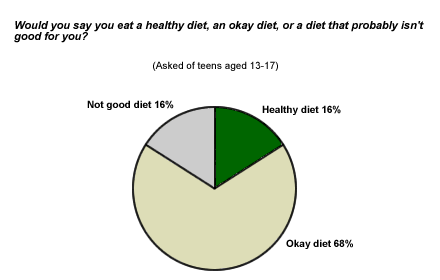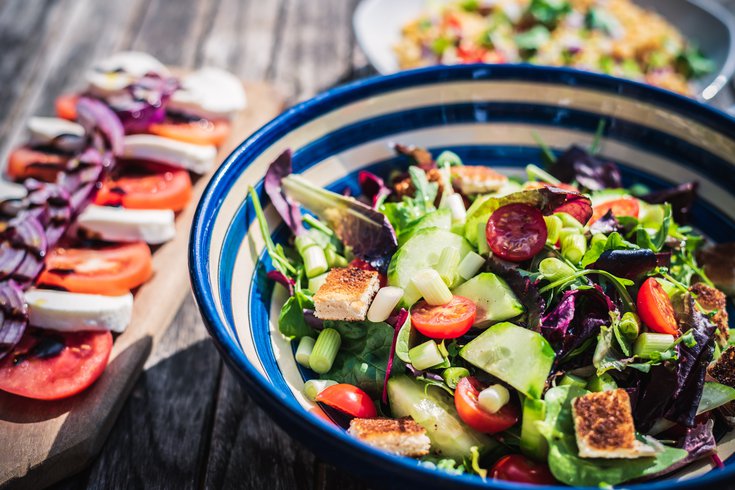
There are three main types for cardiovascular disease prevention: primordial, secondary and secondary. Each consists of the same elements, but their starting points and effects differ. Patients need to know their risk factors in order to develop a personalized prevention plan. The goal is to reduce your risk for cardiovascular problems and live a long and healthy life. Continue reading to learn how to prevent heart attack. This article discusses the different types of cardiovascular diseases and their treatments.
First, focus your efforts on a healthy diet. A heart-friendly diet is one that is high in fiber, low in salt, and rich in vitamins and minerals. Next is to stop eating processed foods like white bread and snacks. These foods are not good for your heart, unless they have high fiber content. You can also avoid processed snacks and fast food. The salt shaker is not a good idea. The body can have too much sodium, which can cause cardiovascular disease.

It's important to eat a healthy diet and exercise regularly. Experts recommend 150 mins of moderate exercise per semaine - approximately 20 minutes per days - along with a variety of low-calorie food options. Regular exercise can also reduce blood pressure and prevent heart diseases. Stress management and mindfulness can be a key factor in preventing heart disease. It is possible to make lifestyle changes that are easier than you may think.
A healthy diet can reduce your risk of heart disease and reduce the severity of your heart attack. It is proven that a diet high in fruits and vegetables can lower your risk of developing the disease. You may be at lower risk if you eat low-fat protein or beans. Some fish also contain high levels of omega-3 fatty acid, which can help reduce your risk of developing cardiovascular disease. Start incorporating these techniques into your daily routine if you have the opportunity.
Smoking is a major risk factor to heart disease. To reduce your risk of developing coronary heart disease, quit smoking. Stop smoking. Your heart health is better if you don't smoke as many cigarettes as possible. You can also avoid secondhand smoking to lower your risk of developing heart disease. You should stop smoking if your are a smoker. This will reduce your chance of developing heart disease.

A lifelong effort to prevent heart disease can be made. While the disease can be hard to spot, it can lead to heart failure and other serious side effects. It is important to take steps that reduce the risk of heart disease. It is possible to lower your risk of developing heart disease by living healthy lives. This will help you live a long healthy life. You'll live longer and be healthier if you do.
FAQ
What does butter do for men?
Butter is one source of saturated fats. This type of fat helps to build stronger bones, healthy skin, and hair.
Butter also contains vitaminK, which prevents bleeding after cuts and bruises. Vitamin K works with vitamin A to prevent bleeding.
Butter is also rich mineral, including calcium and phosphorous. These minerals promote stronger bones, teeth, and teeth.
However, butter has some drawbacks. Butter is high in cholesterol. Some studies show that consuming too much cholesterol may increase the risk of developing cardiovascular disease.
Butter is high in saturatedfat, which contributes both to obesity, and raises cholesterol.
However, if you must have butter, try spreading it on bread rather than dipping it into soup or salad. Bread absorbs less oil than pasta and potatoes.
Is Cardio Better Than Strength Training?
Both are equally good. Cardio is better if you are looking to build muscle faster.
Cardio burns a lot more calories per minute that strength training and is more effective at burning fat.
Strength training increases muscle mass but takes more time than cardio.
What Is The Best Way To Lose Weight?
It is not easy to lose weight. Many people quit because they don’t know where to start.
You can lose weight by following a few simple steps.
First, ensure that you consume fewer calories per day than you burn. You can gain weight by eating more calories than your body burns.
Second, you must start exercising regularly to burn off all those calories. You have many options, including walking, biking, dancing and jogging.
Third, stop smoking cigarettes or drinking alcohol. These habits cause you to consume more calories than you would otherwise.
Fourth, it is important to reduce the consumption of junk food and fatty foods. You can replace them by healthier choices such as fruits, vegetables or lean meats.
Fifth, change your lifestyle. Perhaps you need to get up in the morning to exercise before heading to work.
Sixth, it is important to be disciplined about your diet and follow it.
For those extra calories, you could join a class or go to a gym.
You'll quickly start to notice results if you follow these simple tips.
Is it true?
Protein is important for maintaining healthy bones and tissue. But consuming too much protein can lead to calcium excretion through urine. This can cause kidney stones.
Not everyone who eats more than 2g of protein per kilogram (2.2 lbs) of bodyweight will get kidney stones. People can eat large amounts of protein and not get kidney stones.
Watching your sodium intake can help prevent kidney stones. Sodium helps regulate water balance in the kidneys. A high level of sodium can increase the risk of developing kidney stone.
You can also reduce your intake of proteins if you develop kidney stones. For most people, protein provides half their daily caloric requirements. Reduce your intake of protein and you will likely lose weight.
If you do decide to eat more protein, don't go overboard. Try to eat less than 20% protein in total calories.
How does weightlifting help you lose fat more quickly?
Weight lifting will help you burn more fat, but it's best to combine it and cardio.
To maximize the benefits of weightlifting, you need to perform it after cardio workouts.
If done correctly weightlifting can raise your heart rate, oxygen consumption and help you lose weight.
But if you do not combine it with cardio, you will not see any significant changes in your body composition.
Statistics
- Candidates and applicants must pass all four tests at 70% (minimum level) to graduate from Basic Deputy U.S. Marshal (BDUSM) Training. (usmarshals.gov)
- Get free shipping and 25% off today. (healthline.com)
- The PRS enabled risk stratification for overall prostate cancer and lethal disease with a four-fold difference between men in the highest and lowest quartiles (HR, 4.32; 95% confidence interval [CI], 3.16-5.89). (pubmed.ncbi.nlm.nih.gov)
- 10 pounds in a month is likely during a lean bulking phase, especially for beginners. (muscleandstrength.com)
- Cardmembers earn 5% Back at Amazon.com with a Prime Credit Card. (amazon.com)
External Links
How To
What nutrients do men need each day?
For healthy growth and development, men need to eat a balanced diet. The body requires vitamins and minerals, protein, carbohydrates, fats (fats), water, fiber, as well other essential elements.
You also need specific nutrients for different times in the day. To give you an example, the body uses energy it receives from food to make hormones and antibodies. Protein is needed to build muscles and repair tissue damaged when you wake up.
Your body burns fat at night and stores it as energy as glycogen. Your body requires fewer calories, but still needs enough nutrients. You may have an occasional snack during the evening hours if you feel hungry.
You need to eat enough carbs and protein when you exercise. If you exercise hard, you might feel muscle soreness.
To avoid this, you need to eat carbs and proteins within two hours of training. Your body will breakdown stored glycogen and provide you with glucose for energy.
After your workouts, you should eat protein immediately. This prevents muscle tissue loss that happens while you sleep.
Your body produces lactic acid during high levels of physical activity. It is a form of lactic acid that builds up in the bloodstream. This causes fatigue. This can be avoided by eating foods high in carbohydrates like fruits and vegetables.
Carbohydrates are a good source of energy to help you recover from hard exercise.
In addition, you may want to include lean meats, fish, eggs, milk, cheese, yogurt, beans, nuts, and seeds into your diet.
All of these foods contain high quality protein. Protein promotes muscle growth, and helps repair damaged tissues. Protein is also necessary for the production of sex hormones such as testosterone.
For healthy skin, hair and joints, it is important to eat enough fats. Healthy men should consume between 20% to 35% of their daily caloric intake from fat.
Fat can help keep your heart healthy and protect you from cancer. It helps keep your brain working properly.
Vegetable oils, such as olive oil, sunflower oil or corn oil, soybean oil and peanut oil, can supply most of the fats you require.
These oils are high-in monounsaturated, unsaturated fatty acid (MUFAs). MUFAs can lower cholesterol levels and reduce inflammation. They also protect your cells from damage caused by free radicals.
Saturated fats (SFAs), are found mainly in animal products such as meat, milk products, and butter. SFAs are known to raise LDL ("bad") cholesterol and raise triglycerides. They also promote weight gain and belly fat.
Plant-based oils such as vegetable oil, nuts, seeds, or grains are rich in polyunsaturated fats (PUFAs). PUFAs can improve cardiovascular function and reduce inflammation. They are also good for controlling blood sugar and cholesterol.
Low HDL ("good") cholesterol can lead to erectile problems in men. A high intake of saturated fats leads to higher levels of bad cholesterol.
Men who eat lots of red meat or pork can develop prostate problems. This is because these foods contain high amounts of nitrates. If cooked at high temperatures, the nitrates become nitrosamines. These compounds can cause cancer.
Many processed meats are high in nitrites, and other dangerous chemicals. You should avoid them.
The American Heart Association recommends that you limit your intake of red meat to 2 per week. Instead, choose poultry, fish, legumes, tofu, whole grain bread, and cereals.